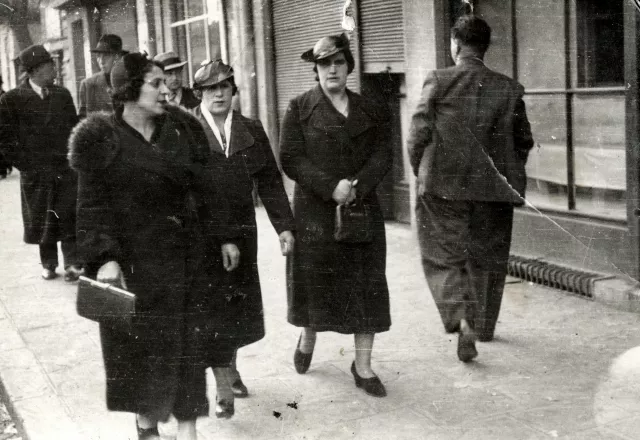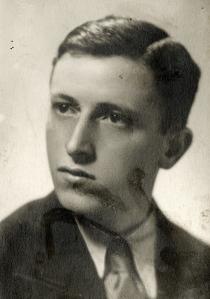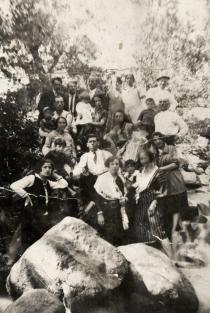RSarina Sabita with friends
This is a photo of my mother (on the left) and her girl friends in Sofia in 1938.
My mother dressed very elegantly and used to go out to restaurants in the evenings with my father and some family friends .
Our family was comparatively well off because my father had succeeded in changing his fortune through his work as a tinsmith and plumber, and had even managed to open a scrap warehouse. The house he had built was at the corner of Pernik and Positano and for that time, it was one of the best in the quarter.
Our family was comparatively well off because my father had succeeded in changing his fortune through his work as a tinsmith and plumber, and had even managed to open a scrap warehouse. The house he had built was at the corner of Pernik and Positano and for that time, it was one of the best in the quarter. It had two rooms, kitchen and a toilet inside, which was a great rarity at that time. We had hot water from a coal-heated boiler, too, which my father, being a very skilled craftsman, had connected to the stove. Four children were born in that house - one boy and three girls (including me). All the children used to sleep in the same room. My parents occupied the smaller room. We grew up in such conditions.
During the winters we used coal for heating and we had a shed full of coal. My mother used to give a bucket of coal to everybody who would ask her for some - she never refused anyone and always showed compassion for those poorer than us. There were many poor people at that time. The poorest Jewish families lived in our quarter. Wealthier Jews lived in the more central part of Sofia. When the Law for the Protection of the Nation was introduced, the wealthier Jews had to move out of the city center, because they were denied the right to inhabit the area beyond Hristo Botev Boulevard, and they moved to our quarter.






































